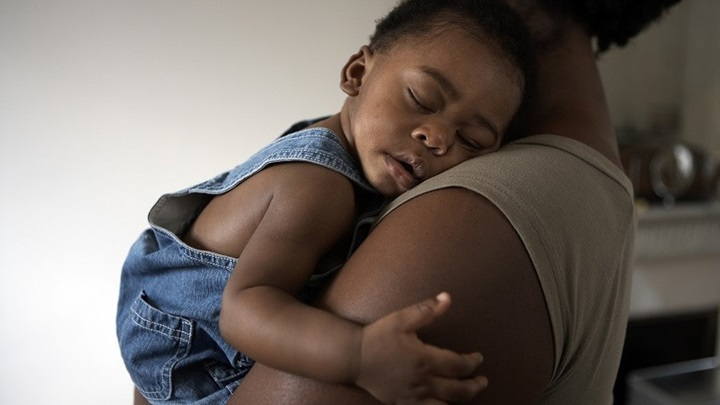Pregnancy and childbirth are often seen as moments of pure joy and anticipation. The promise of a new life, a new family member, fills the air with excitement. However, beneath this joy, there can be a dark and silent struggle that many expectant and new mothers face: depression during and after pregnancy, also known as perinatal depression. It’s essential to recognize that these feelings are more common than you might think, and help is available. This blog aims to provide a comprehensive understanding of perinatal depression, its causes, symptoms, and available treatments. Whether you’re a first-time parent or concerned about your partner’s mental health, this article offers valuable insights and resources.
Perinatal Depression
Perinatal depression encompasses the emotional struggles that can occur during pregnancy and the postpartum period. It’s important to acknowledge that it is a real and prevalent issue, affecting a significant number of women. It can manifest in various ways, from feelings of sadness and anxiety to more severe symptoms that interfere with daily life.
Postpartum Depression Before Giving Birth
While postpartum depression is commonly associated with the period after childbirth, it can actually begin during pregnancy. Expectant mothers may experience heightened stress, anxiety, and mood swings. Recognizing these early signs is crucial for early intervention.
What Does Postpartum Depression Look Like?
Postpartum depression is not a one-size-fits-all experience. It can manifest differently in each individual. Common symptoms include persistent sadness, changes in appetite and sleep patterns, and a loss of interest in activities once enjoyed. Distinguishing these symptoms from the more common “baby blues” is vital.
Where Can I Find Effective Treatment for Postpartum Depression?
Seeking help is a courageous and essential step in battling perinatal depression. Effective treatments are available, including therapy, medication, and support groups. It’s crucial to reach out to healthcare providers and discuss your options.
What Causes Perinatal Depression?
Perinatal depression has multifaceted causes, including biological, psychological, and social factors. Understanding these factors can help identify those at higher risk and inform prevention strategies.
Treatment
Treatment for perinatal depression varies but often includes a combination of medication and psychotherapy. It’s essential to work closely with your healthcare provider to find the right approach for your individual needs.
Participation in Clinical Research
Clinical research plays a pivotal role in advancing our understanding of perinatal depression and improving care. Consider participating in research studies to contribute to the collective knowledge and potentially access cutting-edge treatments.

Do Adoptive Parents Sometimes Get Depressed?
Perinatal depression isn’t limited to biological parents. Adoptive parents can also experience the emotional challenges associated with parenthood. Recognizing these struggles and seeking support is essential.
Why Should I Prioritize My Own Health When There’s So Much Else on My Plate?
Parenthood often comes with an overwhelming sense of responsibility. However, prioritizing your mental health is not selfish but necessary. A healthy parent is better equipped to provide love and care to their child.
What Should I Do If I Have Dangerous Thoughts?
If you ever have thoughts of harming yourself or your child, it’s crucial to seek immediate help. Dangerous thoughts require immediate attention from healthcare professionals or emergency services.
Signs and Symptoms
Understanding the signs and symptoms of perinatal depression is critical for early intervention. This section provides a detailed look at the various indicators that might signal a struggle with depression during or after pregnancy.
Does Postpartum Depression Affect First-Time Parents?
Whether you’re a first-time parent or have experience with raising children, perinatal depression can affect anyone. This section explores the impact on both new and experienced parents and offers coping strategies.
What if I’m Worried About My Partner’s Mental Health?
Supporting a partner who is battling perinatal depression can be challenging. Effective communication and understanding are key to providing the necessary support. This section offers insights into helping your partner through this difficult time.
Can Depression Start Before My Baby Arrives?
Antenatal depression, which occurs during pregnancy, can be just as debilitating as postpartum depression. Understanding its early signs and seeking timely intervention can make a significant difference.
Remember
In closing, it’s essential to remember that you are not alone in your journey through perinatal depression. There is hope, and with the right resources and guidance, you can overcome this challenge and embrace the joys of parenthood.
Conclusion
Depression during and after pregnancy is a challenging and isolating experience, but it is one that many people have faced and overcome. By understanding the causes, symptoms, and available treatments, you can take the first steps toward seeking help and improving your mental health during this critical time. Remember, you are not alone, and with the right support and resources, you can navigate the path to recovery and enjoy the journey of parenthood to its fullest.
Share this post: on Twitter on Facebook on Google+

